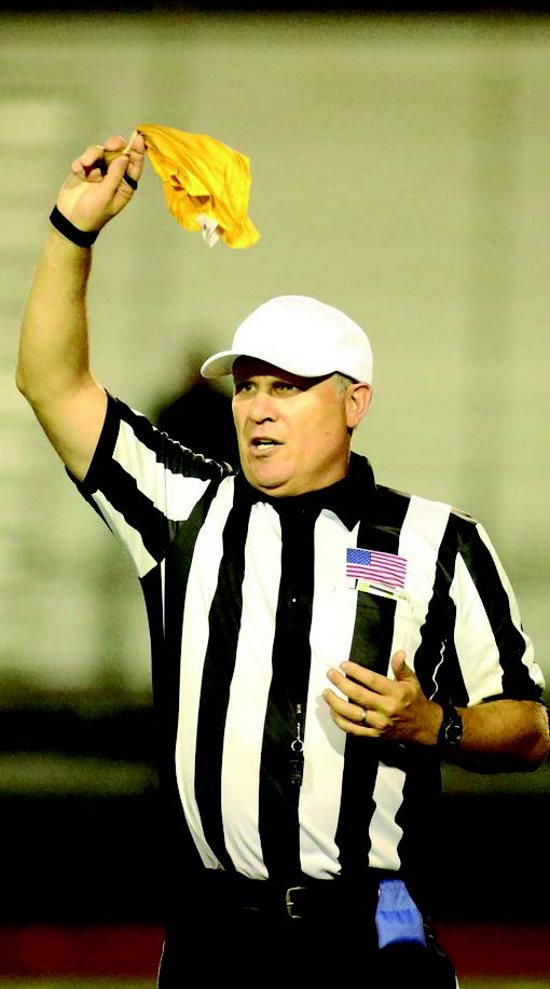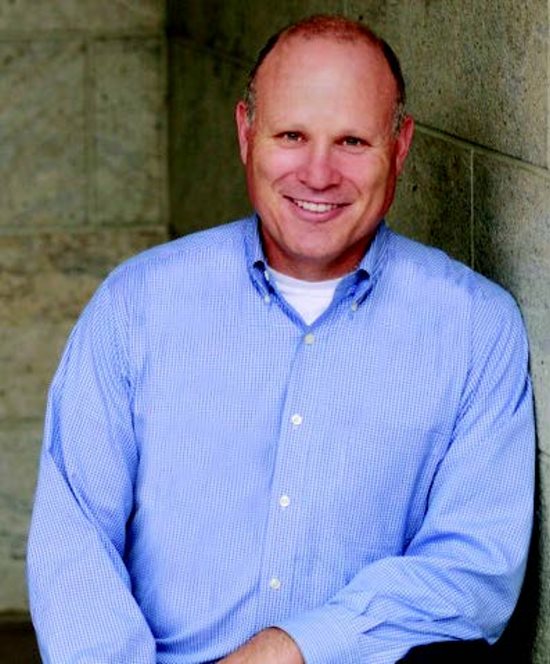
| ||||||
Longtime Lafayette resident Rich Broad is one of those people that answered the call to be an official, though not through the above fictitious ad, and he has never looked back. Broad, who works in the beverage and food industry, has been working as an official for the Contra Costa Football Officials Association (CCFOA) for the past 15 years.
Working with colleagues that range in age from the early 20s to those in their 70s, Broad has found great satisfaction in his officiating pursuit and speaks for his fellow officials: "It's a hobby and a challenge. It's something that's fun to do and at the same time, it's giving back to the kids and the schools in the community. I was exposed to refereeing by a roommate whose father was a Pac 10 referee. I thought it would be interesting and was referred to the association."
The CCFOA has a president, vice president, treasurer, secretary, assigning secretary and training coordinator. If one is interested in becoming a football official, it's simply a matter of applying to the association. However, becoming an official requires more than just showing up with a striped shirt.
It all begins with a gentleman named Bert Michalczyk who is in charge of training the first and second year officials. He holds a number of sessions during the summer prior to the season. The association sets up a set of summer study sessions, which Broad organizes, utilizing videos of prior high school games. There is also a preseason all-day clinic and refereeing at least two preseason high school scrimmages. The aim is for constant improvement for each official as they are expected to continually study the rule books and other trade publications throughout the year.
There are two books that the officials need to know forward and backward. First is the 100-page rulebook. Second is the mechanics book - this is a book that defines where each of the officials needs to be at all times and in all situations to assure maximum coverage of the field and allow each official to communicate verbally and nonverbally with each other.
As in most things, some officials are better than others. What is it that makes a top official? There are a number of factors, according to Broad: "First and foremost, there has to be a willingness and desire to learn and improve. Physical conditioning is important to assure that you will be in the right position to see and make the correct call."
Mastering the skill of officiating does not come quickly. According to Broad: "You constantly learn more and more things to be looking out for. It takes between four and eight years before you really feel confidant and the game becomes second nature to you."
There is a strong human factor as well that Broad feels can be as important as knowing the rules: "You have to be able to manage people, particularly the coaches and players. I hold the coaches to a high level of sportsmanship; they are teachers and we expect them to act as role models to the 'students.'"
Safety is also a priority for the officials and with experience, one learns the techniques to help avoid contact, though, at times, it's something that simply can't be avoided. Broad says: "In general, we hope that everyone prioritizes their own safety over putting themselves in a risky situation."
Many of the officials have full-time jobs and others are retired. About half of the football officials will officiate other sports. There have been female officials in the past and there is currently one female official in the association.
The association is constantly on the lookout for new referees. There are some days during the season that will call for as many as 85 officials. Broad says that they particularly welcome people who have worked other sports because "those who referee other sports will come in understanding the nuances of officiating."
The CCFOA takes great pride in Johnny Jenkins who began refereeing high school games in Contra Costa and is now an official in the National Football League. There are a number of officials in the CCFOA that also work at various levels of college football. Dave Cutaia, a retired police chief in the Martinez Police Department, is also an Arena Football Official, has refereed a college national championship game and is the rules interpreter for ABC and ESPN on their nationally televised games.
With the players and the coaches constantly yelling at the officials, how does one block that out? "For me, it's pretty easy," says Broad. "I grew up blocking out my mom when she told me to do the chores around the house. Actually, it's a matter of having confidence in what you're doing and also knowing that as human beings, we are going to make mistakes sometimes."
How does Broad define a successful game? "It's those nights when you walk off the field and you feel that you did a really good job in controlling a game that was very physical and competitive," he says. "Officiating has been a great experience because it allows me, at the end of the week, to get out on the field, get exercise and be responsible with my fellow officials for keeping the game under control. It's a challenge managing these intense young men and I take great satisfaction being a part of this great sport."

Reach the reporter at:
